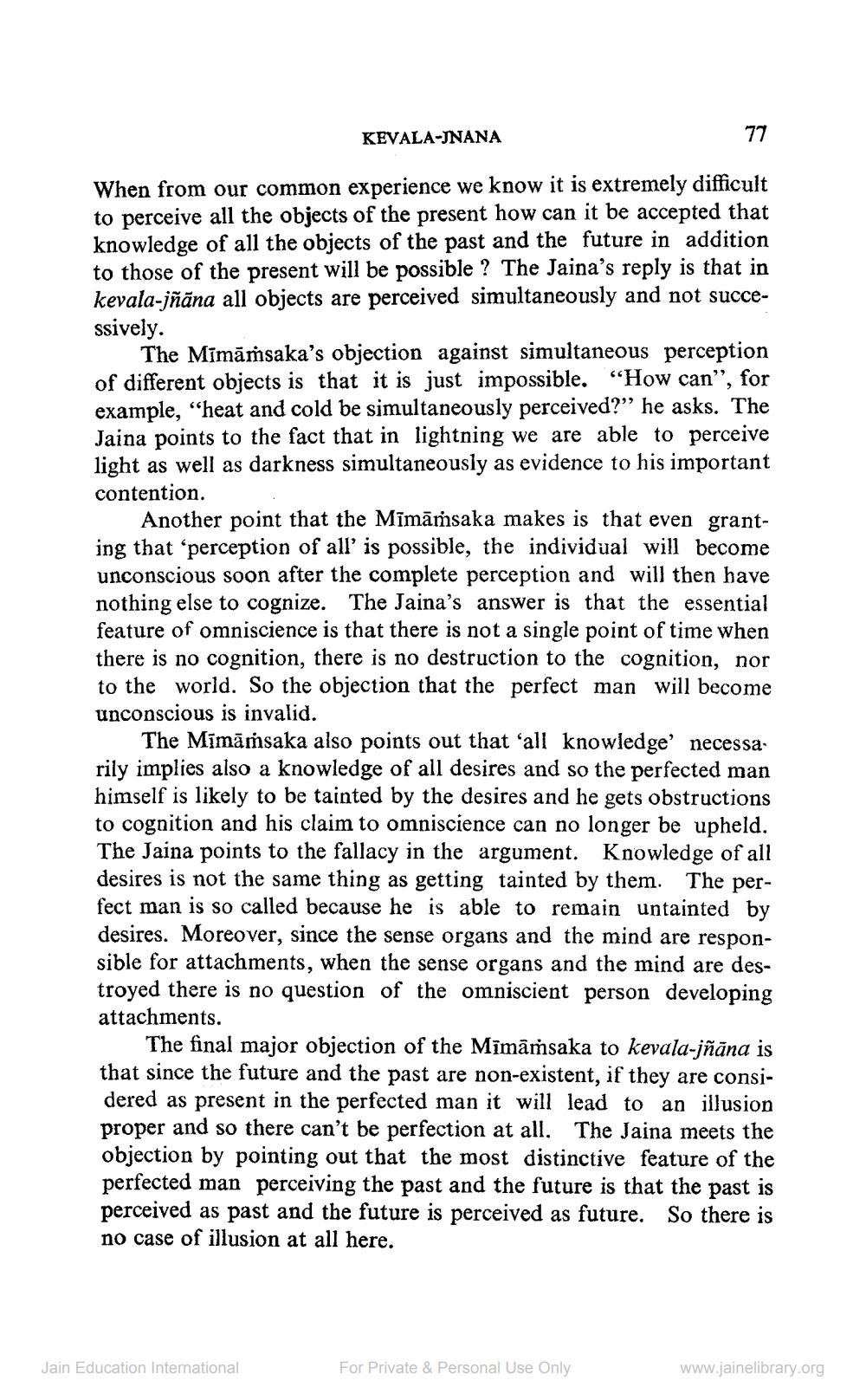________________
KEVALA-JNANA
77
When from our common experience we know it is extremely difficult to perceive all the objects of the present how can it be accepted that knowledge of all the objects of the past and the future in addition to those of the present will be possible? The Jaina's reply is that in kevala-jñāna all objects are perceived simultaneously and not successively.
The Mīmāṁsaka's objection against simultaneous perception of different objects is that it is just impossible. "How can”, for example, "heat and cold be simultaneously perceived?” he asks. The Jaina points to the fact that in lightning we are able to perceive light as well as darkness simultaneously as evidence to his important contention.
Another point that the Mīmāṁsaka makes is that even granting that “perception of all' is possible, the individual will become unconscious soon after the complete perception and will then have nothing else to cognize. The Jaina's answer is that the essential feature of omniscience is that there is not a single point of time when there is no cognition, there is no destruction to the cognition, nor to the world. So the objection that the perfect man will become unconscious is invalid.
The Mīmāṁsaka also points out that 'all knowledge' necessa: rily implies also a knowledge of all desires and so the perfected man himself is likely to be tainted by the desires and he gets obstructions to cognition and his claim to omniscience can no longer be upheld. The Jaina points to the fallacy in the argument. Knowledge of all desires is not the same thing as getting tainted by them. The perfect man is so called because he is able to remain untainted by desires. Moreover, since the sense organs and the mind are responsible for attachments, when the sense organs and the mind are destroyed there is no question of the omniscient person developing attachments.
The final major objection of the Mīmāṁsaka to kevala-jñāna is that since the future and the past are non-existent, if they are considered as present in the perfected man it will lead to an illusion proper and so there can't be perfection at all. The Jaina meets the objection by pointing out that the most distinctive feature of the perfected man perceiving the past and the future is that the past is perceived as past and the future is perceived as future. So there is no case of illusion at all here.
Jain Education International
For Private & Personal Use Only
www.jainelibrary.org




